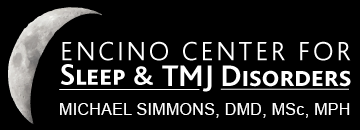Getting the Most out of Your Sleep Study
November 5, 2018
According to the American Sleep Apnea Association, approximately one in five Americans report having sleep-related problems. One of the most common sleep disorders is sleep apnea, which is a serious medical issue that increases your chances of suffering from a dangerous stroke, heart attack, or other medical problems.
No one is immune from sleep apnea — this is an issue that affects men and women of all ages and backgrounds. Common symptoms of sleep apnea include heavy snoring, restless sleep, and feeling tired or irritable during the day.
If you think you might be suffering from sleep apnea, Dr. Simmons will make sure you get the correct diagnosis and the care that’s right for you. Dr. Simmons will begin by examining your airway and asking you some questions about the quality of sleep you’ve been getting.
What’s a Sleep Study?
The next step in diagnosing sleep apnea is getting a sleep study. Also known as a PSG (short for polysomnogram), a sleep study provides detailed information about what’s occurring in your body while you sleep. A sleep study is performed overnight at a sleep center or hospital. It’s also possible to take your sleep study at home using a portable device.
During your sleep study, the technicians will apply electrodes—small metal discs with wires attached—to parts of your body that need to be monitored. The electrodes check a number of factors, including brainwave activity, heartbeat, muscle tone, leg movements, breathing patterns, and the oxygen level in your blood.
Tips to Prepare for Your Overnight Sleep Study
In the time leading up to your sleep study, there are a few conditions that can affect the precision of your results. For example, if you show up to your sleep study with wet or styled hair, it can taint the collected data. We recommend showering beforehand, but make sure to dry your hair fully before you arrive.
Another task that could enhance your results is to record your sleep schedule in a “sleep diary.” You should aim for about two-weeks of recorded data. The information you’ll be collecting is the time you went to bed, when you woke up, when or if you woke momentarily, and what you ate/drank prior to sleeping. This information can be extremely important, as it sheds additional light on the findings in the sleep study.
Other things to keep in mind while preparing for your sleep study include not taking a nap and avoiding caffeine prior to your appointment. These can both make falling asleep more difficult, and this can skew your results. It might help to walk or work out before your test as well. The goal here is to wear yourself out, so you can sleep as comfortably as possible, creating the best conditions for accurate results.
What You Should and Shouldn’t Bring
During your sleep study, it’s important to be as comfortable as you can. Besides your state-issued identification card and insurance card, there are a few other items you’ll want to bring to make your stay much more enjoyable including:
- Comfortable pajamas
- A change of clothing
- Usual toiletries (toothbrush, toothpaste, floss, face wash, etc.)
- Favorite pillow/blanket
- Books/magazines, glasses—any other passive activities like crossword puzzles
- Eye mask, ear plugs, white noise machines are all allowed, as long as they are your routine sleep aids
- Any medication you take is fine, but bring a list so your doctor can review it
One item you don’t want to bring is any backlit device. The blue spectrum light emitted interferes with the production of melatonin, a hormone that helps regulate sleep. Signals from electronic devices like these can also interfere with the data that’s collected. Another reason to avoid these electronics during your sleep study is that they make noises that can be disruptive to other patients.
Getting the Help You Deserve
If you or someone you care about is struggling to get the sleep they need, contact Dr. Michael Simmons at the Encino Center for Sleep & TMJ Disorders today. He and his delightful staff will make sure you get the right diagnosis and the care you deserve.
